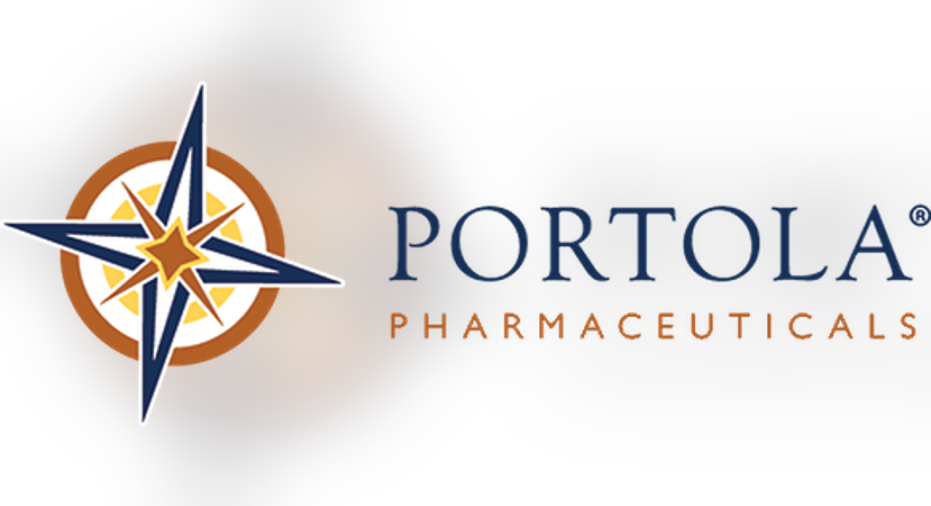Why Portola Pharmaceuticals, Inc. Increased 11.6% in April

Image source:
What: Shares of Portola Pharmaceuticals, a clinical-stage pioneer of novel blood clot related therapeutics, rose 11.6% last month, according to data from S&P Global Market Intelligence. The company took a beating when it announced less-than-encouraging data for one of its clinical stage candidates in March, and bargain hunters gave it a lift last month.
So what:The market hammered Portola stock down 33% last month when one of its late-stage candidates, an anticoagulant known as betrixaban, hit a major snag. A large study with this factor Xa inhibitor failed to show a statistically significant improvement over the standard-of-care (injected Lovenox fromSanofi) atpreventing dangerous blood clots in acute patients who recently suffered serious medical conditions requiring hospitalization.
The 7,500 patient trial was designed to first measure the occurance of blood clots, or death from one, in a subset of about 62% of enrolled patients with increased evidence of clotting activity.If that data looked good, the researchers would then move on to analyzing about 91% of patients with the same signs of clotting activityandaged 75 years or older, then finally the entire group of 7,500 patients.
The first group fell just short of statistical significance against the standard of care, which resulted in last month's hammering of the stock. However, investigators went through with the 75-year and older group and found a significant improvement. Even more encouraging was a highly significant improvement in the entire group as of 7,500.
Now what:With these results, betrixaban is down, but not entirely out. Investors will want to keep their eyes open for what becomes of a planned meeting with the FDA coming up soon.
Lovenox is typically administered in hospital by a healthcare practitioner, while Portola's betrixaban (along with other Factor Xa-class anticoagulants) is a pill that can be sent home with patients, reducing their hospital stay and strain on healthcare budgets. More than 1 million blood clots and 150,000 clot related deaths occur in the G7 countries each year.Given the significant results in the entire population from the study, there could be a path forward with this drug.
More importantly, the company's most important clinical asset, Andexxa, is under review at the FDA. A decision is expected by August 17, but I wouldn't be at all surprised if it came earlier.
New Factor Xa oral anticoagulants such as Johnson & Johnson'sXarelto and Bristol-Myers Squibb'sEliquis put up annual sales of $1.87 and $1.86 billion last year, respectively, but they have a slight problem. If a patient has a bleeding event, or requires emergency surgery any reason, the drug can't be shut down quickly. The lack of an antidote is thought to be stifling sales of this new class of blood thinners.
Portolla's Andexxa is a first-in-class, fast acting antidote for these drugs, and it earned a breakthrough therapy designation from the FDA. And, it hit its primary goal in trials supporting its application.
While factor Xa inhibitors such as Xarelto and Eliquis are relatively new,during the 12 months ended April 2015, there were over 50,000 patients admitted to hospitals in the U.S. for bleeding events that could in theory have been shut off with administration of Andexxa.
Betrixaban was going to have to compete with already-popular factor Xa inhibitors, but Andexxa could have the factor Xa inhibitor-reversal field all to itself. If approved, its sales should ramp up quickly as hospitals clamor for such a drug.
Andexxa might not hit the $1 billion blockbuster mark, but it could help Portola stop bleeding money and begin producing sustainable positive cash flows in the quarters ahead.
The article Why Portola Pharmaceuticals, Inc. Increased 11.6% in April originally appeared on Fool.com.
Cory Renauer owns shares of Johnson & Johnson. You can follow Cory on Twitter @coryrenauer or connect with him on LinkedIn for more healthcare industry insight. The Motley Fool owns shares of and recommends Johnson & Johnson. Try any of our Foolish newsletter services free for 30 days. We Fools may not all hold the same opinions, but we all believe that considering a diverse range of insights makes us better investors. The Motley Fool has a disclosure policy.
Copyright 1995 - 2016 The Motley Fool, LLC. All rights reserved. The Motley Fool has a disclosure policy.



















